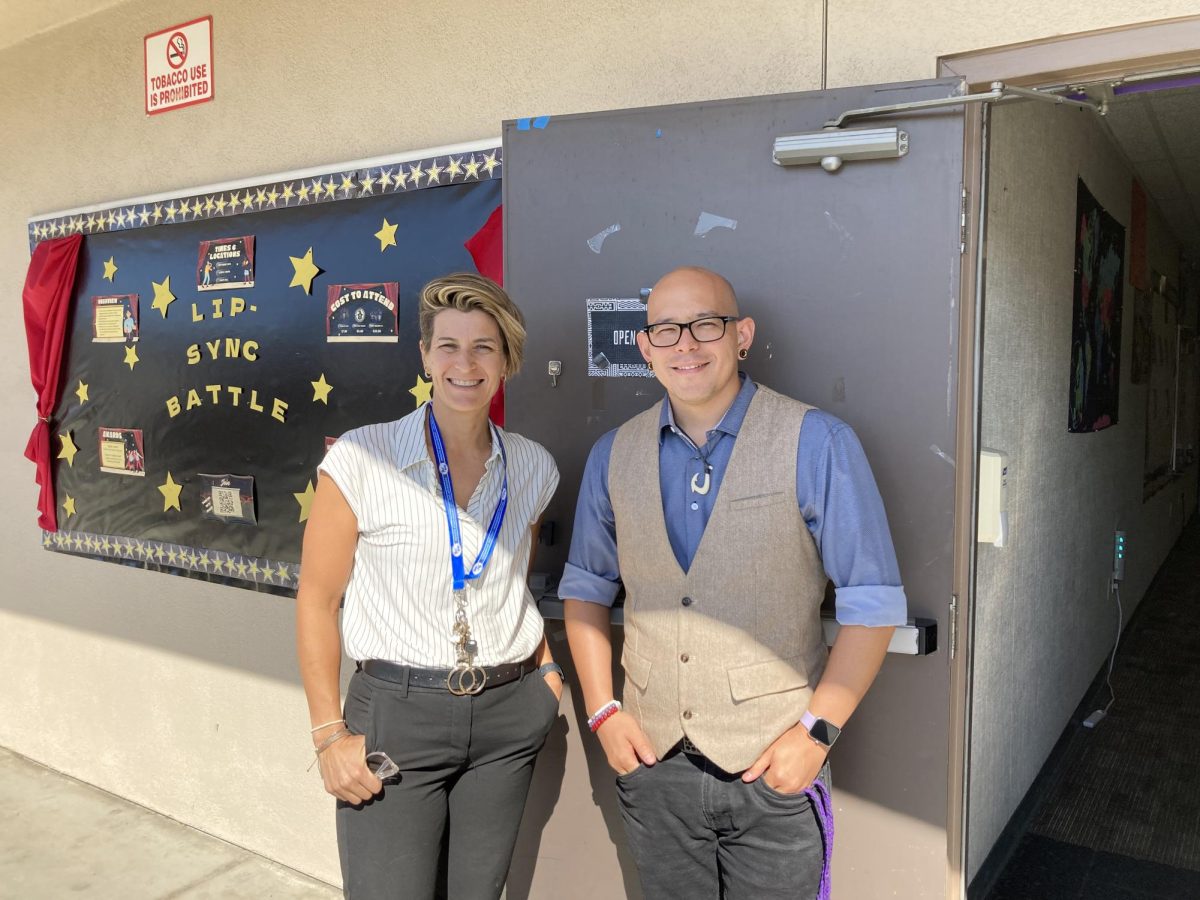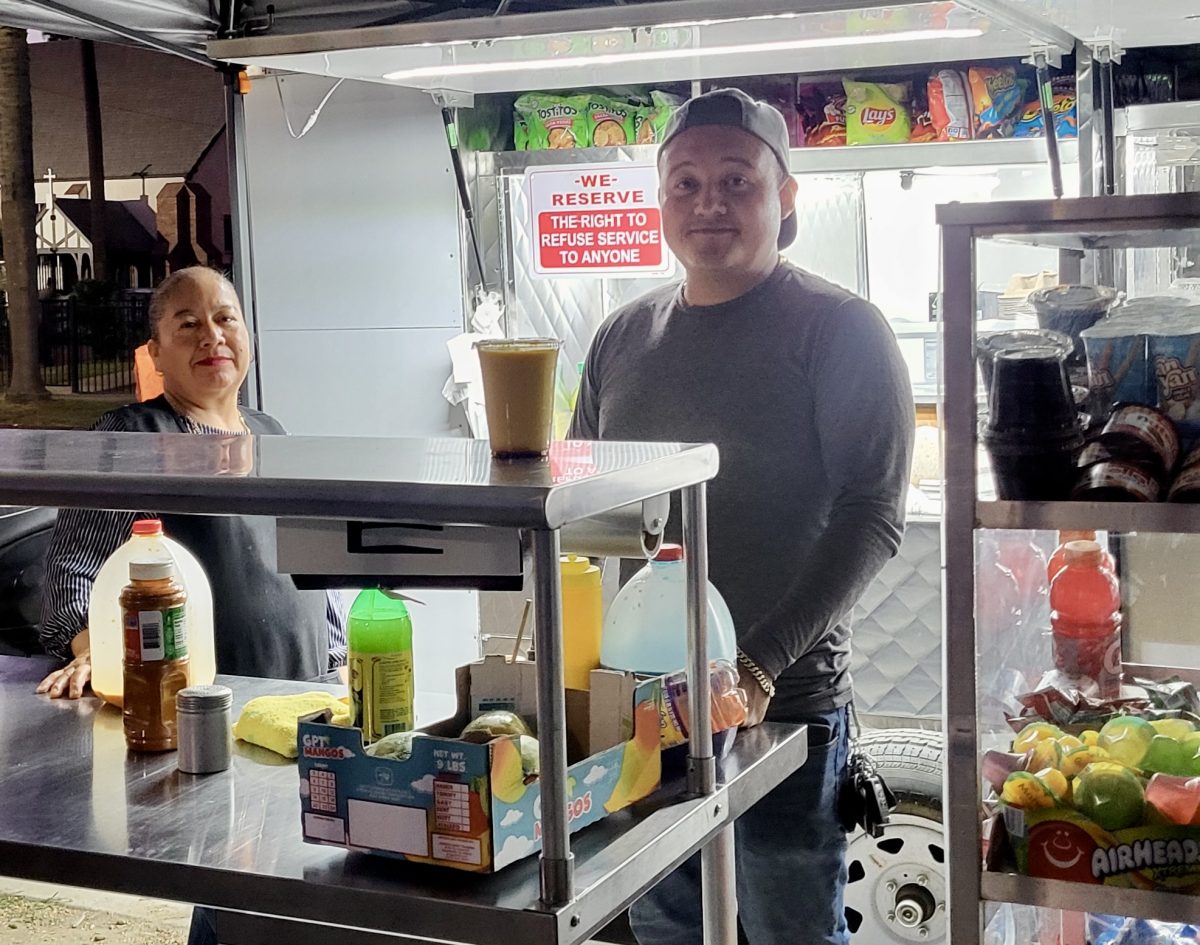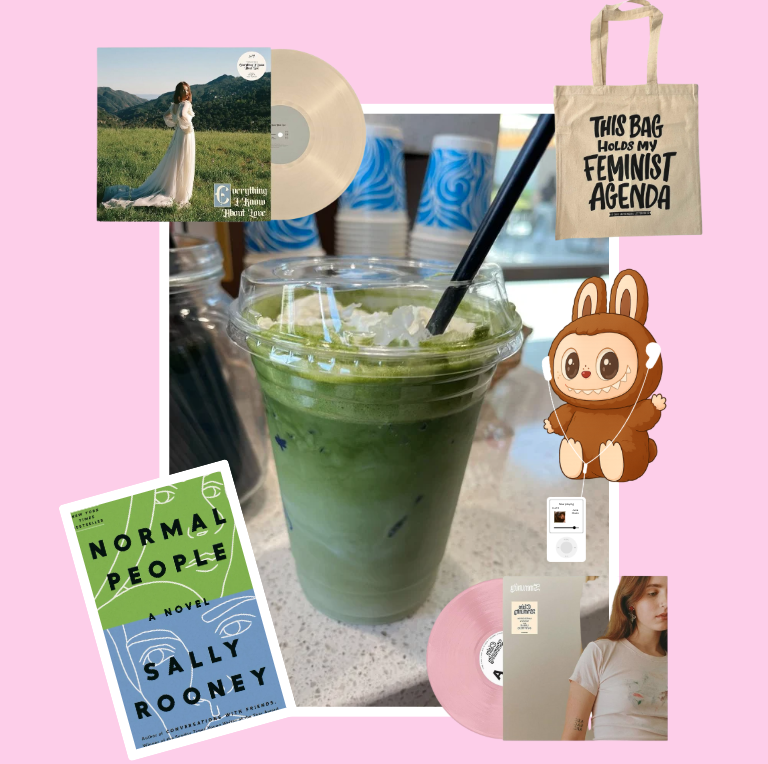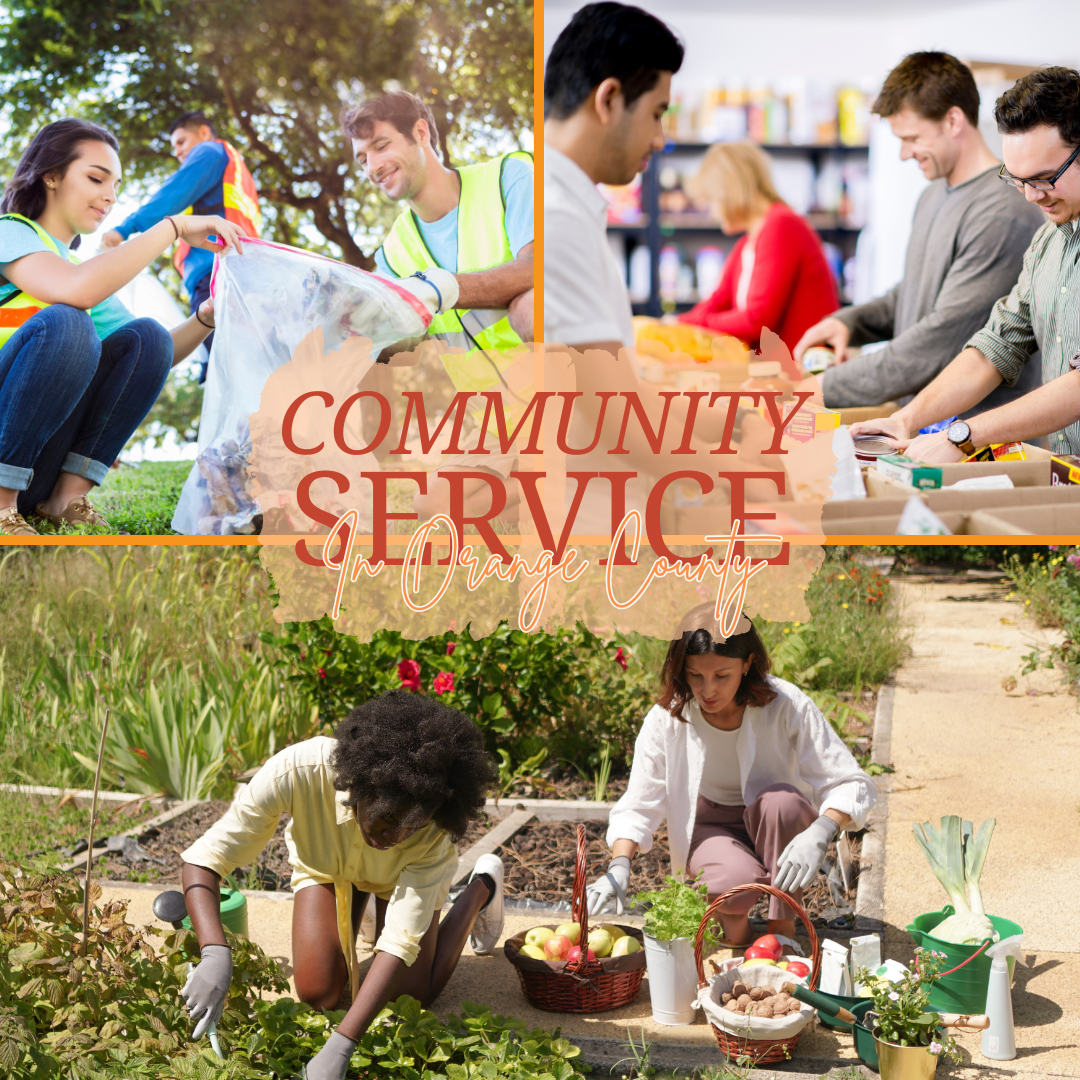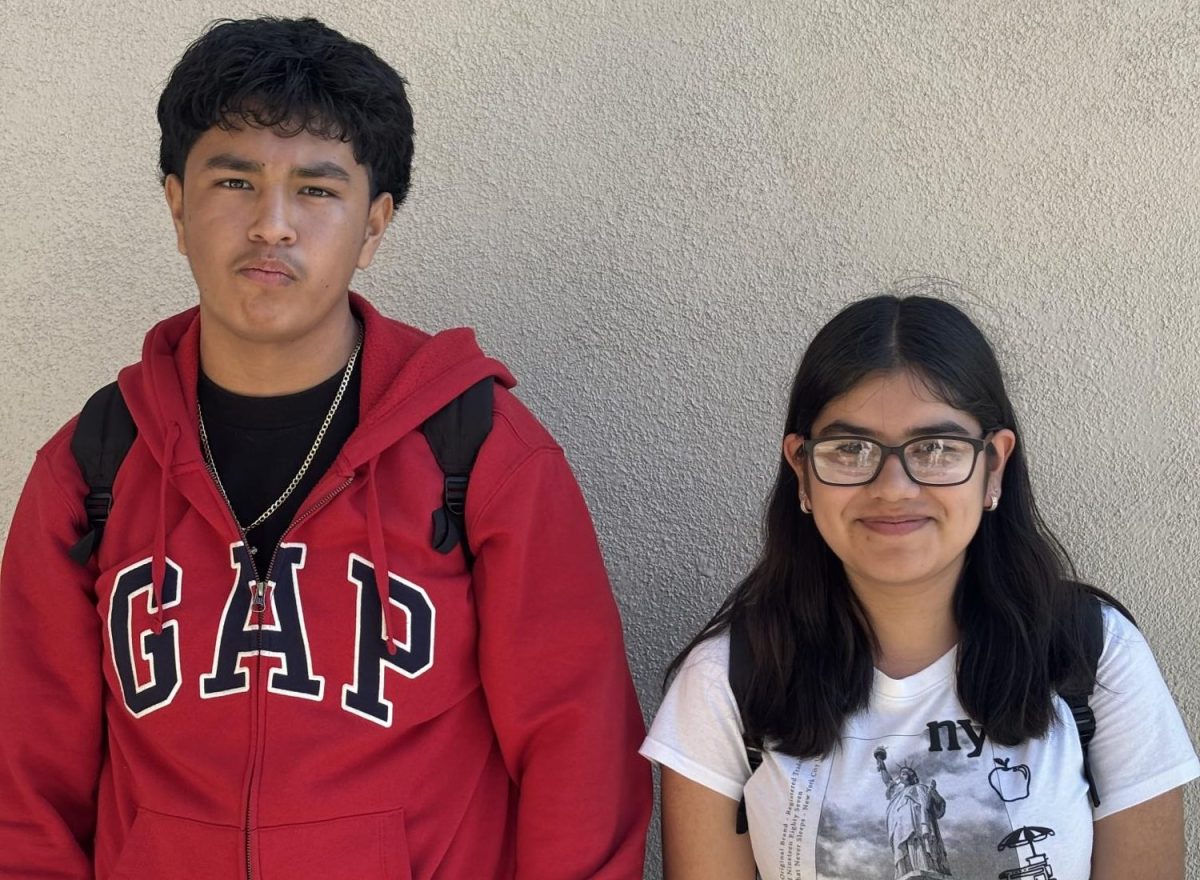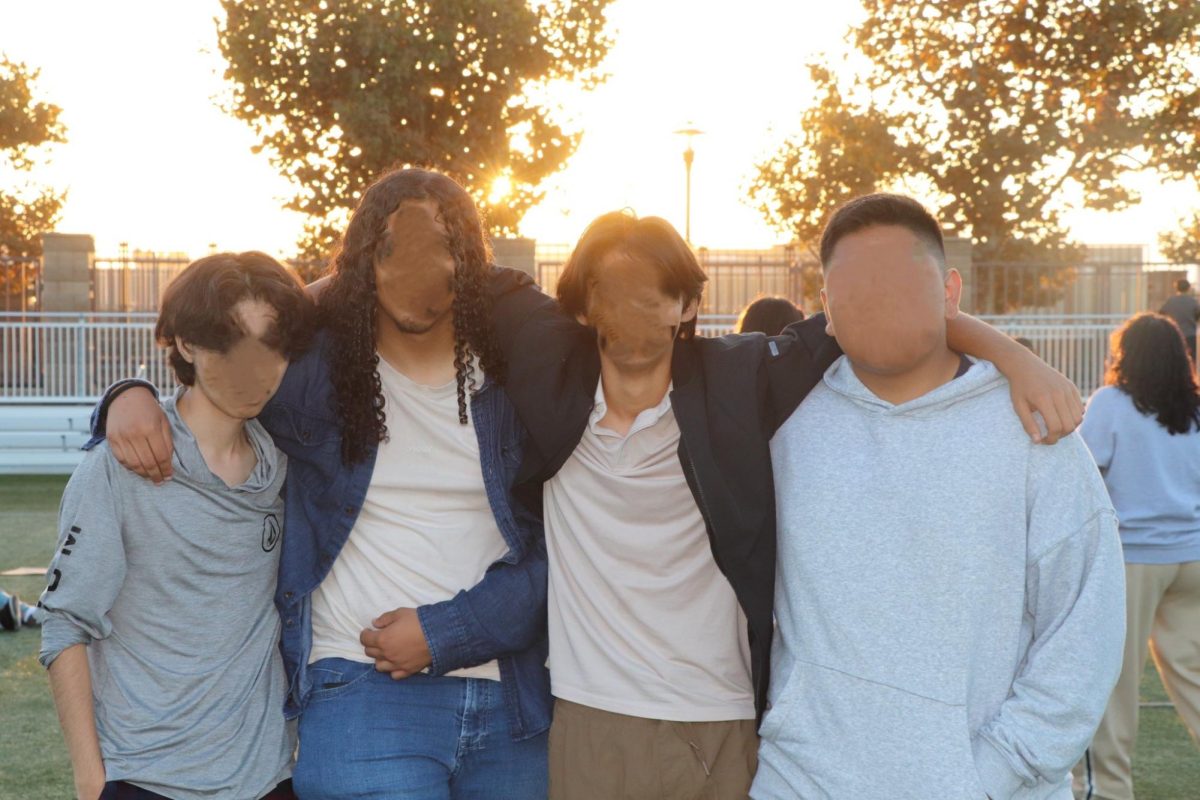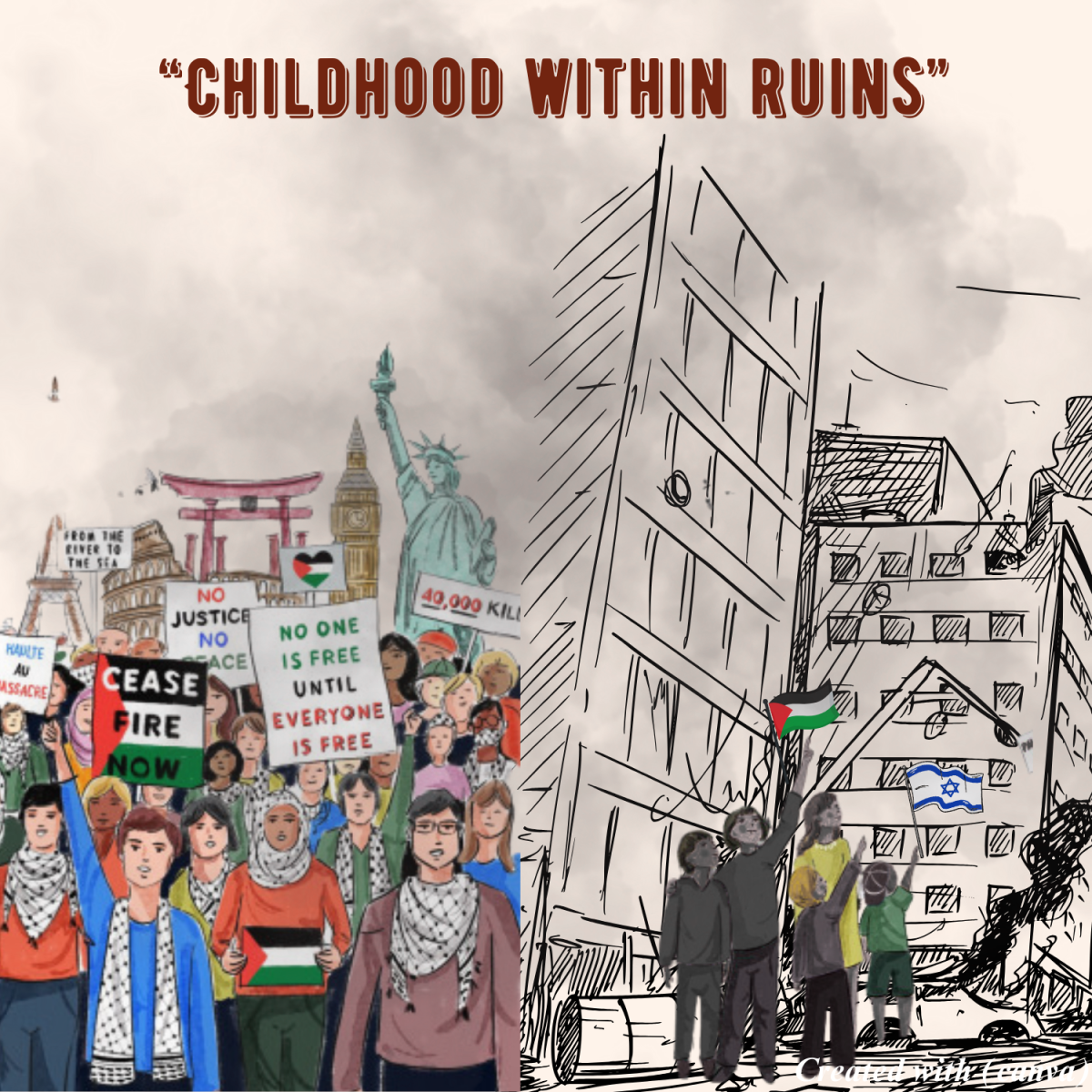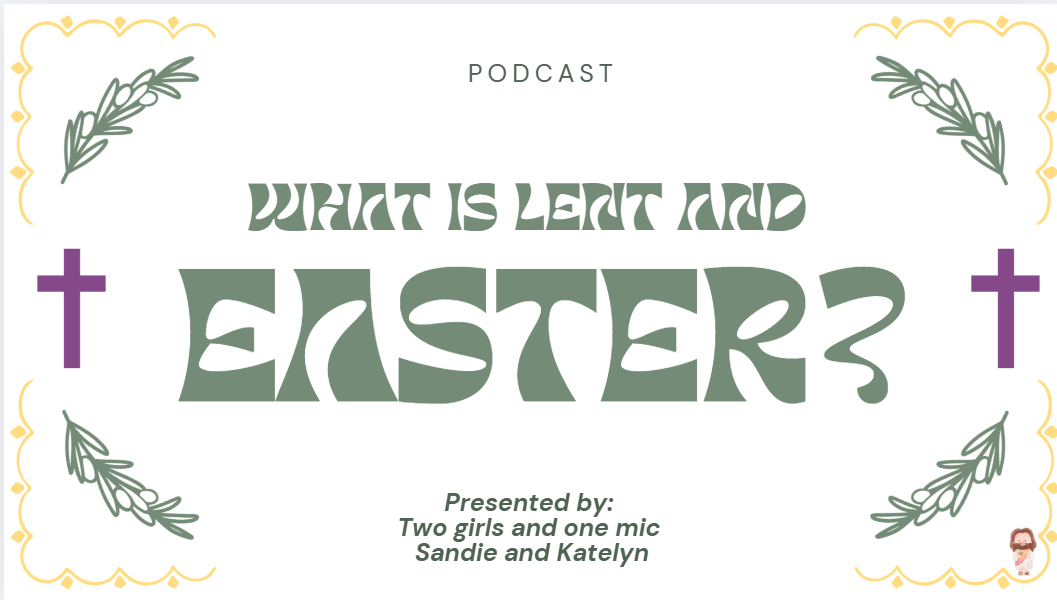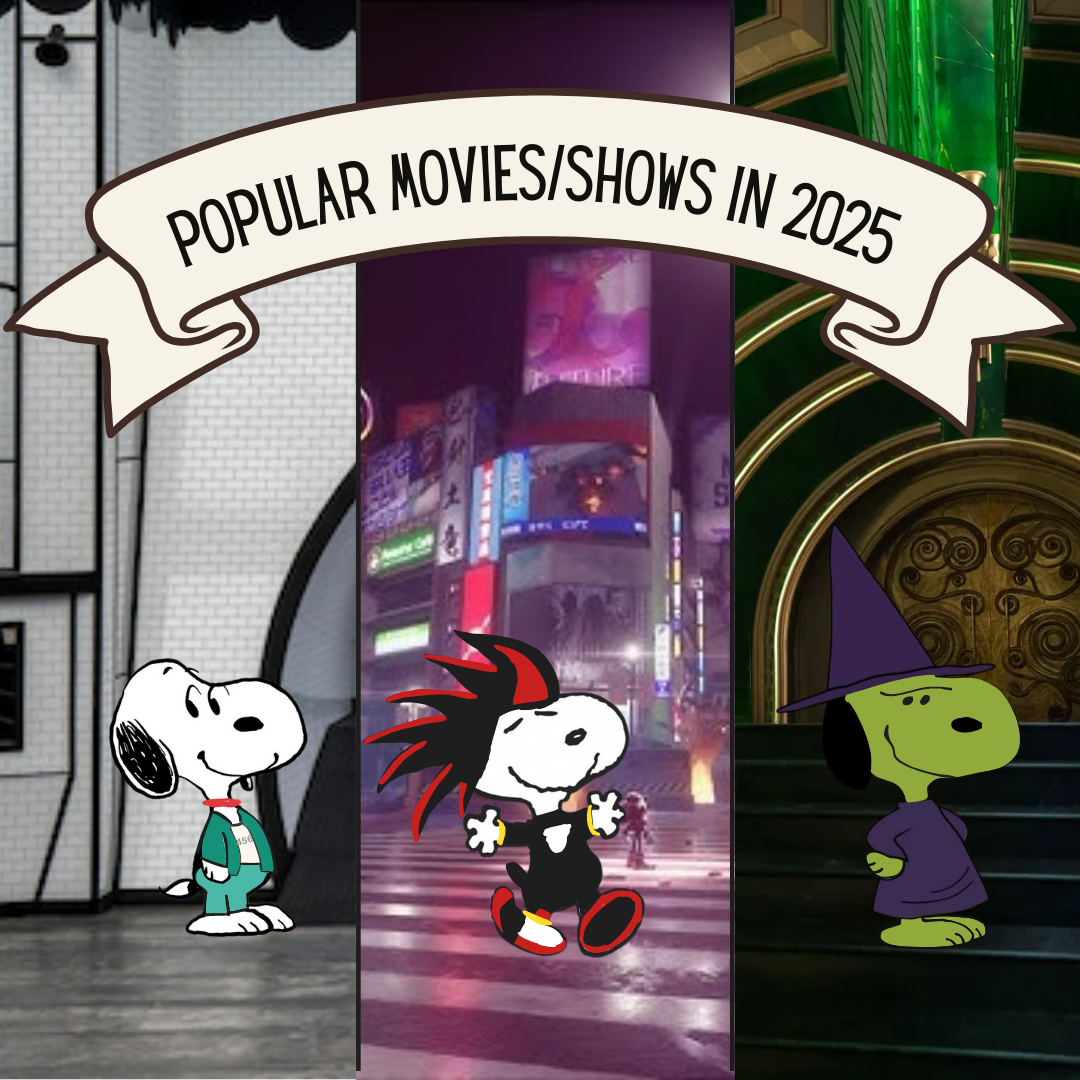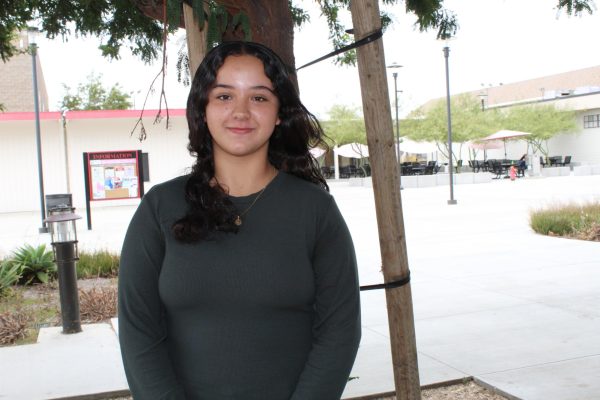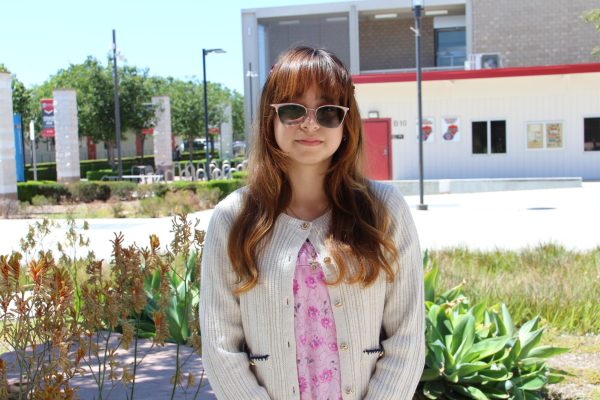LEILANI DANG: My name is Leilani.
MAYRA ARTEAGA: My name is Mayra.
JOSELIN CRUZ: And my name is Joselin.
DANG: In this podcast, we’re going to go over the topic of overconsumption and the basics of it. According to Oxford Languages, overconsumption is the action or fact of consuming something to excess.
DANG: Personally, I think the definition of overconsumption is when you buy too much of something. What do you guys think?
ARTEAGA: I think that overconsumption is–like how you–said buying too much of a thing that you don’t necessarily need.
CRUZ: Adding on to the idea, I feel like it’s when you buy things that you’re either not gonna use or don’t need, and it just ends up being a waste.
DANG: Now I’m gonna go for my opinion about why I think overconsumption is bad. Usually, overconsumption is plastic and it takes a lot of your space, like, I don’t know, like little toys and maybe stickers even. No offense to people who do scrapbooking, but a lot of times you people don’t use these things, which is why I think overconsumption can be a waste of your space.
DANG: What do you guys think?
ARTEAGA: My personal opinion on overconsumption is that there is no good side to it. It’s just a bad thing, overall, a lot of things that people like, overconsume on, ends up just being thrown away, and it becomes just like a pile of trash somewhere in a landfill. And I think that a lot of people can often pass over consumption as like, collecting stuff and also like it develops into a shopping addiction. So like, that’s how it can lead to more bad things over time. What about you? Joselin?
CRUZ: I think that over consumption is bad because I feel like you get to a point where you spend an excessive amount of money on random things that you don’t even need, and you feel like you might need them, but then you’ll look back and see that they’re not even useful.
DANG: I also think it’s good to remember that minimalism and overconsumption has to be balanced. You can’t be using things too much, like–not using–but buying too many things, but you also don’t want to have too little of things, like less than what you need, I guess. And we’re gonna go to like the main part. You may or may not notice, but overconsumption contributes to our current situation of our environment, such as CO2, pollution, etc.
CRUZ: Feel like the plastic is also a big part of it, because most of it is not biodegradable. And I also saw that pollution isn’t equally distributed, and I think that United States has the most amount of pollution, so I feel like that’s definitely a surprise.
ARTEAGA: Personally I think that over consumption affects the environment a lot, because over time, people realize that these things that they over consumed on aren’t quite necessary, so they throw it away and end up in landfills, and then also the fact that these factories, They have to keep up with the people who are constantly purchasing to them, purchasing from them like you know, they have to keep up with what is being asked for, and that emits a lot of CO2 coming from it.
DANG: In summary, what you just said, Mayra, is that companies need to keep up with what people want–demand. So factories work harder, machines work harder, to produce more items, and that creates more CO2.
DANG: I definitely agree with you guys. I think overconsumption does lead to pollution, and it definitely leads to more trash in landfills, and it’s definitely usually not biodegradable. And to add on, what Joselin said, I know that a lot of things like Stanley’s, the new things, and all that usually are made out of metals and plastics which are not biodegradable, and people who don’t reuse them or throw them away, it just ends up in landfills and never goes away.
DANG: Now we’re going to talk about how laborers and countries are affected by this. If you live in America, you should know that America outsources a lot of their materials to make their stuff. Factories and companies also like to use world countries like outside of America to produce your stuff, because it’s much cheaper, which harms a lot of humans.
ARTEAGA: Um I agree. So like, when there’s, like, a heavy demand on these items that people are overconsuming, all the factories have to, you know, find a way to reach the demand. And some of these ways are unethical, like putting people to work really hard in these factories to meet what they need to make, and they’re getting underpaid for it, and the environments that they’re working on is like, very horrible.
CRUZ: Also, I feel like instead of buying unnecessary things, you can use that money for things you actually need, like the rent or like bills.
DANG: Companies could definitely be using this money for charity, and we as people could definitely use our own money for things we actually need, like groceries. But I also know that capitalism is not cheap. Well, in this case, it is because they just want to spend less money on making stuff, which is why it harms our people and environment.
ARTEAGA: So now we’re going to be talking about how we ourselves have contributed to overconsumption. Personally, I’m not proud of it, but I have overconsumed a lot of things, specifically, like a lot of stuffed animals and like plushies, also like plastic figures of like anime characters and like cartoons, um just like little unnecessary stuff, like key chains and like random toys and whatnot.
DANG: I can definitely relate. I have a bunch of key chains, but I don’t use half of them. They’re just sitting with my plushies that I also don’t really use. They’re kind of just there for decoration, which isn’t a bad thing, but I kind of just don’t need them.
DANG: What about you, Joselin, what have you overconsumed?
CRUZ: I haven’t really like over consumed on anything too much, but I used to buy, like, a lot of Beanie Boos, and they are not very cheap. And I also have pets, and I buy them, like toys and food, and they just end up going in waste because they don’t even use them.
DANG: Yeah, definitely I can relate to buying all these things I don’t need, like stickers. I also think that social media also pushes us to do this. So we’re going to continue about how social media affects overconsumption.
ARTEAGA: So, building on the idea, I think that with social media, it’s really easy to push out these trends and micro trends, because it’s like an easy platform to reach a lot of people with, like, with TikTok, Instagram, and all that stuff. Like, we can see people with Stanley’s, Owalas, like Labubus, Sonny Angels. It’s so easy to influence people to go out and buy these things that don’t really serve much of a purpose if you buy it in excess.
DANG: Yes, all over social media, like people are somehow like collecting them, I guess, which doesn’t benefit anyone, because you don’t need over 20 cups that you’re never gonna use and eventually will end up in the thrift store because of this, a lot of influencers quite like influence people to buy more of the things they’re like showing on your screen, and especially since you’re getting promoted and paid for some of these advertisements, a lot of people think you know that you should really get it and you really don’t need to. So don’t pressure yourself into thinking that you do.
CRUZ: On social media. I have also seen so-called sneaker heads, in which they collect a crazy amount of shoes that they either used to sell online for a profit. And I feel like that’s pretty unnecessary, and like you shouldn’t be doing that as a job and just get, like a real one. And also talking about shoes, I’ve seen that Sambas have, and has been, like, a big trend, and a lot of people are getting it just because people have it.
DANG: I definitely agree. I see a lot of people buy stuff then resell it. You don’t need to be buying all these shoes you’ll never wear and then reselling them for double the price no one’s gonna buy them. And also, you don’t need all these shoes to be collecting, you should be buying shoes to wear, not to be collecting them and then adding more to, like, all this capitalism and money problems. We really don’t need to be doing that. And also, this leads me to talk about, like, websites and shopping apps such as Shein and Temu. It’s just like a lot of overconsumption.
ARTEAGA: So yeah, like you see, like these influencers on TikTok with like, their $300 Shein hauls, which is, like, a really bad influence. And these people they believe that, oh, like, cheaper stuff is better to buy, you know, even though it’s made really badly. But there’s this idea that like, oh, it’s cheap, so I just keep rebuying it. And that’s fine, but in the long run, you end up spending more money rebuying the same, like badly made stuff, when you can just spend a little bit more to get good quality clothes, which also helps reduce your overconsumption of bad like products.
DANG: Especially since these apps are online websites and stuff, it’s easier to push out advertisements and promotions. So when people like buy stuff, they just send it out “under account”, and you just watch it and force yourself to buy it. But even if you don’t need it, it’s just like, okay… so with the influence of social media, we often get pressured to contribute to over consumption.
CRUZ: In summary, we consider overconsumption bad because it hurts our environment, communities, and creates unethical, extensive labor, which contributes to capitalism and overall it’s just bad.
CRUZ: My name is Joselin Cruz.
DANG: My name is Leilani Dang.
ARTEAGA: And my name is Mayra Arteaga, and this is our podcast.

